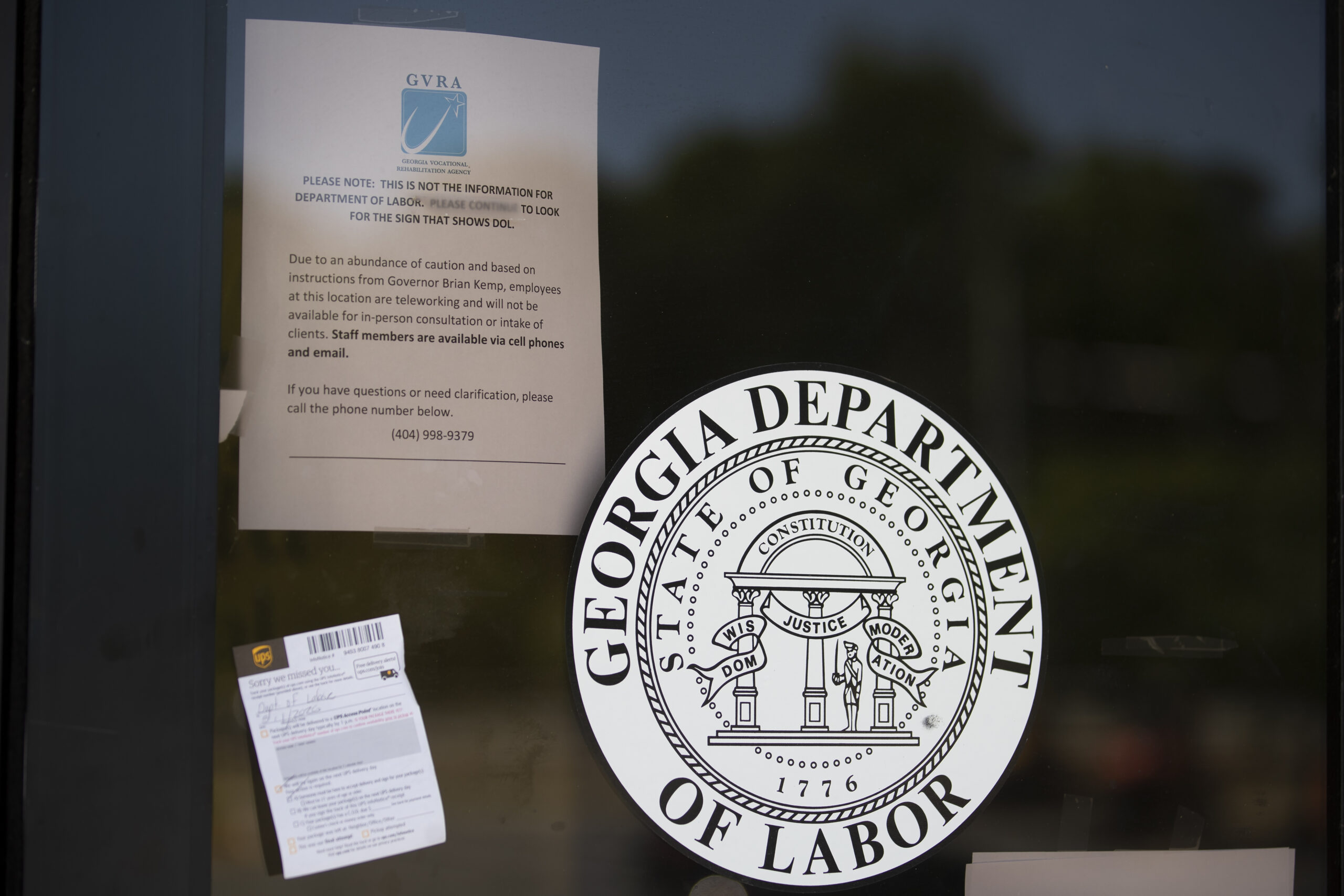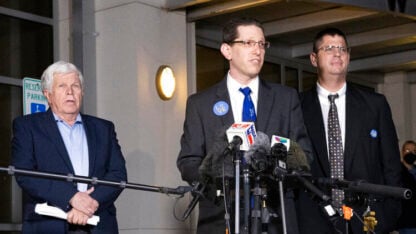50,000 Georgia Gig Workers Not Filing Forms To Claim Unemployment Money, Officials Say

The Department of Labor says it is getting an overwhelming amount of phone calls from people wondering where their payments are.
John Bazemore / Associated Press
About 1.8 million Georgians have now filed for unemployment due to COVID-19, according to the latest numbers from the Georgia Department of Labor.
Among them are 108,097 gig workers, freelancers and independent contractors. They don’t qualify for state unemployment but are eligible for $600 a week in federal Pandemic Unemployment Assistance, or PUA, payments.
State officials said half of them are not filling out the correct form on a weekly basis, which triggers the payments.
“For PUA, that request for payment page is different than the regular unemployment page. So they have to make sure they’re requesting payment in the right spot,” said DOL spokeswoman Kersha Cartwright.
She said about 50,000 people are in this category of having their claim for unemployment approved and their money waiting for them until they fill out the correct online form.
The Department of Labor says it is getting an overwhelming amount of phone calls from people wondering where their payments are. They have called in retirees to help with the onslaught of claims.
Officials said so far most Georgia unemployment claims were filed each week by employers as they furloughed workers on a temporary basis. But as the pandemic drags on, many had to let go of employees permanently. In those cases, those who lost their jobs need to file for unemployment themselves.
“The original attempt for employer filings was for temporary unemployment, meaning someone is out of work for a few weeks and will be called back,” said labor commissioner Mark Butler.
He wants to make the transition from employer to employee filings easier.
“We’re going to roll out the ability to automatically just switch those individuals over.”
The Department of Labor is planning to hold webinars for employers to help them understand the new transition process. Butler said it should cut down on payment interruptions for people who permanently lose their jobs.








